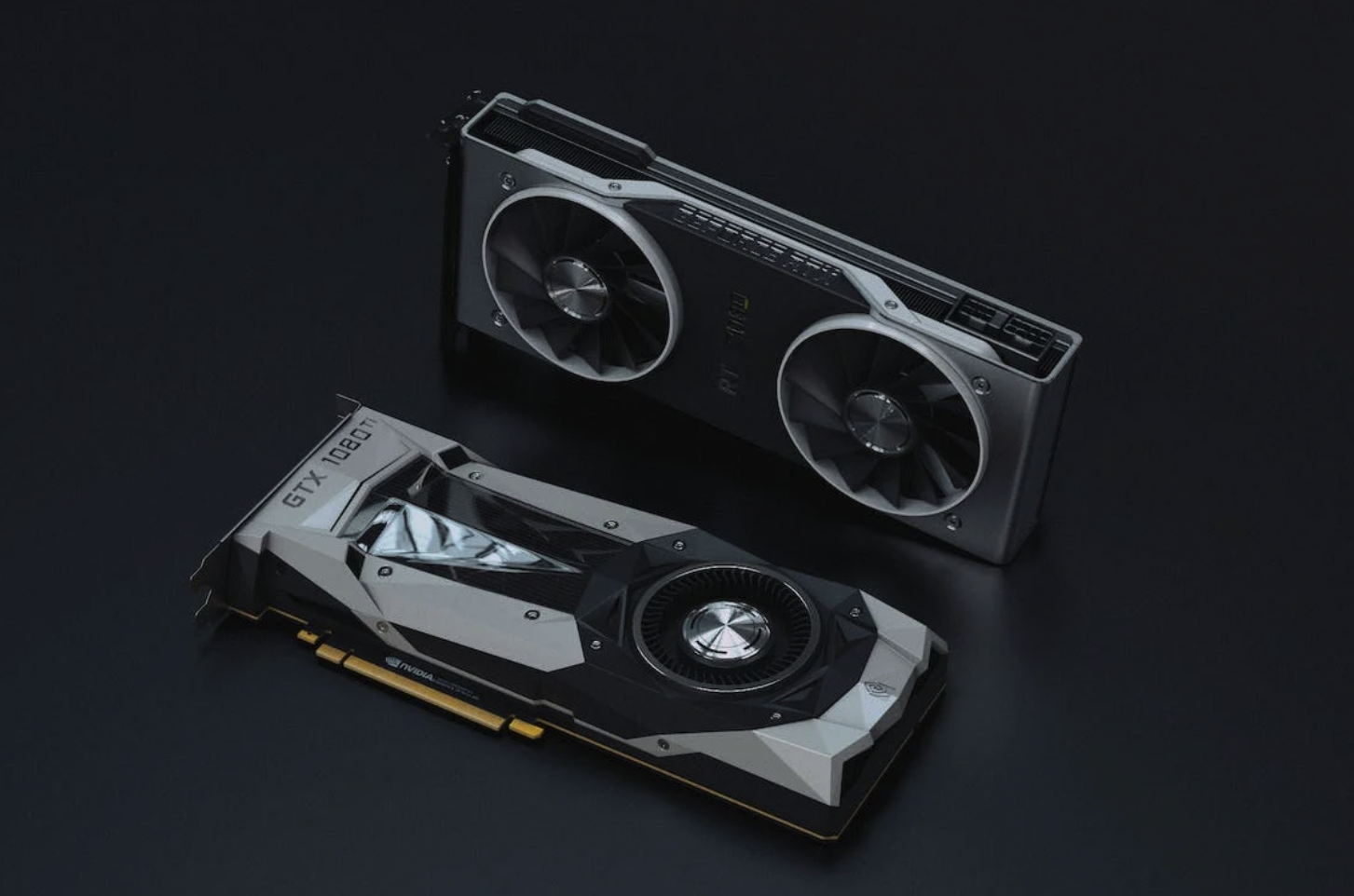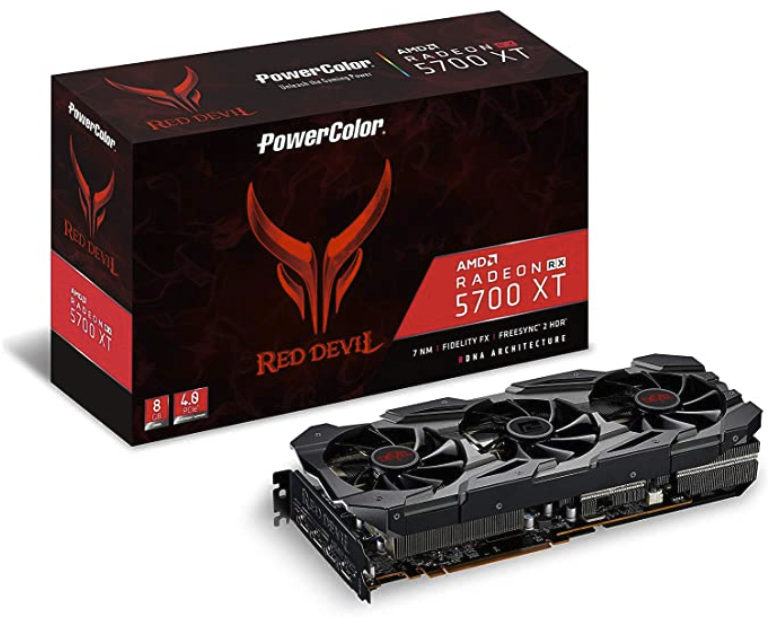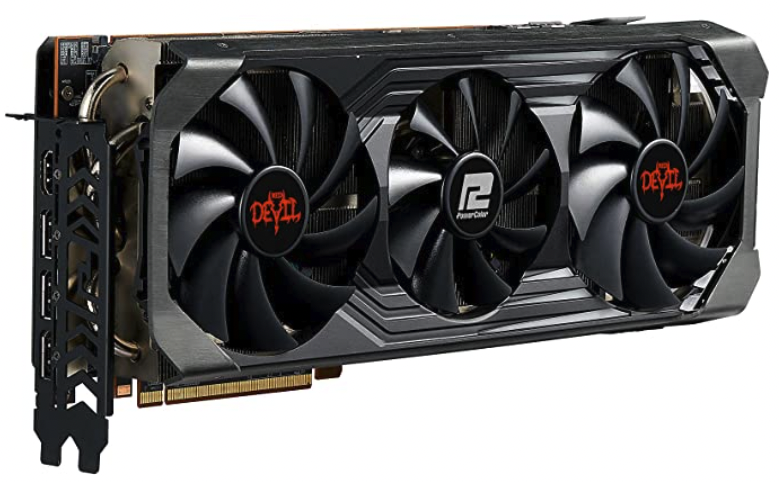Gaming is a graphically-intensive task for a PC so it’s important to know what a good GPU temperature is for gaming activities.
The ideal temperature for a GPU is 65–85 degrees Celsius when under load.
If your GPU is running hotter than about 105 degrees Celsius, the GPU is running too hot and that risks damaging the GPU or other components of your machine.
How Hot Should the GPU Run Normally?
This depends on the type of tasks your machine is being asked to do.
For example, if you’re just browsing the web or working on documents, your GPU temperature should be lower than if you were playing graphically-intensive games or running other demanding applications.
As a general rule of thumb, a GPU temperature under 60 degrees Celsius is considered safe. However, every card is different so refer to your graphics card’s specifications for more information.
What GPUs Can Run Hot (Overclock)?
Some do better than others.
The Radeon RX 5700 and 6000 series GPUs are rated to run up to 110 degrees Celsius safely.
Radeon RX 5700
Radeon RX 6800
What Factors Affect GPU Temperature?
There are several factors that can affect your GPU temperature.
These include:
Room Temperature
If the room you’re in is too hot, that will raise the temperature of your GPU. Make sure you have proper ventilation and air conditioning to keep things cool.
Cooling System
The quality of your computer’s cooling system will have a big impact on GPU temperature. If you’re using a cheap or outdated cooling system, that could be the reason your GPU is running too hot.
Overclocking
Overclocking—or running your hardware at higher than manufacturers intended speeds—can also make your GPU run hotter. If you’re overclocking, keep an eye on temperatures and back off the clock speeds if things start to get too hot.
Other Components
If other components in your machine are overheating, that can affect your GPU temperature.
For example, if your CPU is overheating, that can put extra strain on your graphics card and cause it to run hotter than normal.
What Happens When My GPU Overheats?
If your GPU overheats, it will throttle itself down to try and stay within safe operating temperatures.
That can lead to lower frame rates, stuttering, and other performance issues. In extreme cases, it can cause your machine to crash.
Over time, running at high temperatures can also shorten the lifespan of your GPU.
How Can I Monitor My GPU Temperature?
There are a few different ways you can monitor your GPU temperature.
The easiest is probably to use a monitoring tool that’s already built into your graphics card’s drivers.
(For NVIDIA cards, that’s the NVIDIA Control Panel; for AMD cards, it’s Radeon Settings.)
You can also find standalone monitoring tools that will work with any kind of graphics card.
Once you have a monitoring tool set up, keep an eye on your GPU temperature while gaming or running other demanding tasks. If things start to get too hot, take a break and let things cool down.
How much heat and stress can a GPU ACTUALLY take?
What Causes High GPU Temperatures?
There are several things that can cause high GPU temperatures and be done to prevent it:
Dust, Dirt, and Grime on GPU
Grime can accumulate on your GPU over time, making it run hotter. Cleaning your machine regularly can help prevent this.
Poor Ventilation
If your machine doesn’t have good airflow, that can lead to higher temperatures. Make sure there’s nothing blocking the vents on your case and consider adding extra fans if needed.
Overclocking
As mentioned before, running your hardware at higher-than-intended speeds can make things run hotter.
If you’re overclocking, keep an eye on temperatures and back off the clock speeds if things start to get too hot.
Room Temperature
If the room you’re in is too hot, that will raise the temperature of your GPU.
Make sure you have proper ventilation and air conditioning to keep things cool.
Cooling System
The quality of your computer’s cooling system will have a big impact on GPU temperature. If you’re using a cheap or outdated cooling system, that could be the reason your GPU is running too hot.
Other Components
If other components in your machine are overheating, that can affect your GPU temperature.
For example, if your CPU is overheating, that can put extra strain on your graphics card and cause it to run hotter than normal.
Excess Background Apps and Processes Going
If you have other stuff going on your machine, that can cause your GPU to overheat.
Damage to the GPU
If the GPU itself is damaged, that can cause it to overheat.
✔️how to FIX your PC high temperatures | overheating CPU/GPU when gaming [complete guide]
How Can I Lower My GPU Temperature?
Here are a few things you can do to lower your GPU temperature:
Clean Your Machine Regularly
Dust and dirt can build up over time, making your machine run hotter. Cleaning your case regularly can help prevent this.
Improve Your Case’s Ventilation and Airflow
If your case doesn’t have good airflow, that can lead to higher temperatures. Make sure there’s nothing blocking the vents on your case and consider adding extra fans if needed.
Pick the Right Cooling System for Your Machine
The quality of your computer’s cooling system will have a big impact on GPU temperature. If you’re using a cheap or outdated cooling system, that could be the reason your GPU is running too hot.
Monitor Your Temperature and Take Breaks When Needed
Keep an eye on your GPU temperature while gaming or running other demanding tasks. If things start to get too hot, take a break and let things cool down.
Just like humans, sometimes computers need a break too.
Overclock cautiously
As mentioned before, running your hardware at higher-than-intended speeds can make things run hotter.
If you’re overclocking, keep an eye on temperatures and back off the clock speeds if things start to get too hot.
Reduce Background Apps and Processes
If you have other stuff going on in the background, that can cause your GPU to overheat.
Close any excess apps and processes you don’t need to help things cool down.
Make sure your Room Temperature is Cool
If the room you’re in is too hot, that will raise the temperature of your GPU. Make sure you have proper ventilation and air conditioning to keep things cool.
Check for Damage
If the GPU itself is damaged, that can cause it to overheat. If you think there may be damage, take your machine to a qualified technician to have it checked out.
How To Lower Your GPU Temperatures
Inadequate Power Supply
If your power supply isn’t providing enough power, that can lead to all sorts of problems, including overheating.
Make sure your power supply is adequate for your system and consider upgrading if needed.
Improperly Seated Graphics Card
If your graphics card isn’t properly seated in its slot, that can cause all sorts of issues, including overheating.
Make sure your graphics card is properly seated and tighten any loose screws if needed.
Faulty Fans
If the fans on your machine aren’t working properly, that can lead to overheating.
Check to make sure all of your fans are working correctly and replace any that are damaged.
Bad Thermal Paste
If the thermal paste between your CPU and cooler isn’t doing its job, that can lead to overheating.
Check the condition of your thermal paste and apply new paste if needed.
Consult a qualified technician if you’re not comfortable doing this yourself.
FAQs – What Is Too Hot for a GPU?
What’s too hot for a GPU?
This depends on the make and model of your GPU, but in general, anything over 80 degrees Celsius is too hot.
If things start to get too hot, take a break and let things cool down.
Can dust cause a GPU to overheat?
Yes, dust can build up over time and block airflow, causing your GPU to overheat. Cleaning your case regularly can help prevent this.
What happens if my GPU overheats?
If your GPU overheats, it will likely throttle itself down to avoid damage. This can lead to lower framerates and reduced performance. In extreme cases, overheating can damage your GPU or even cause a fire.
Monitor your temperature and take breaks when needed to help avoid this.
What are the symptoms of a overheating GPU?
The most common symptom of an overheating GPU is lower than expected performance.
If things start to get too hot, your GPU will likely throttle itself down to avoid damage. This can lead to reduced framerates and other problems.
Can I use a bigger cooler on my GPU?
Yes, using a bigger or more powerful cooler can help reduce GPU temperatures. However, make sure it’s compatible with your case andGPU before making any changes.
Can I use a different thermal paste for my GPU?
Yes, you can use a different thermal paste if you think the one that came pre-applied isn’t doing its job. Just be sure to clean off the old paste before applying the new one.
Conclusion – What Is Too Hot for a GPU?
Overheating can damage your GPU or even cause a fire, so it’s important to keep things cool.
If you think your GPU is overheating, check for signs of damage and take steps to reduce the temperature.
Monitoring your temperatures and taking breaks when needed can help prevent overheating and keep your GPU running smoothly.
Related
- Ways to Fix GPU Artifacting
- Best SSD Brands for 2024
- Esports Names
- IPTV Players
- Xbox Series S vs PS4 Pro




